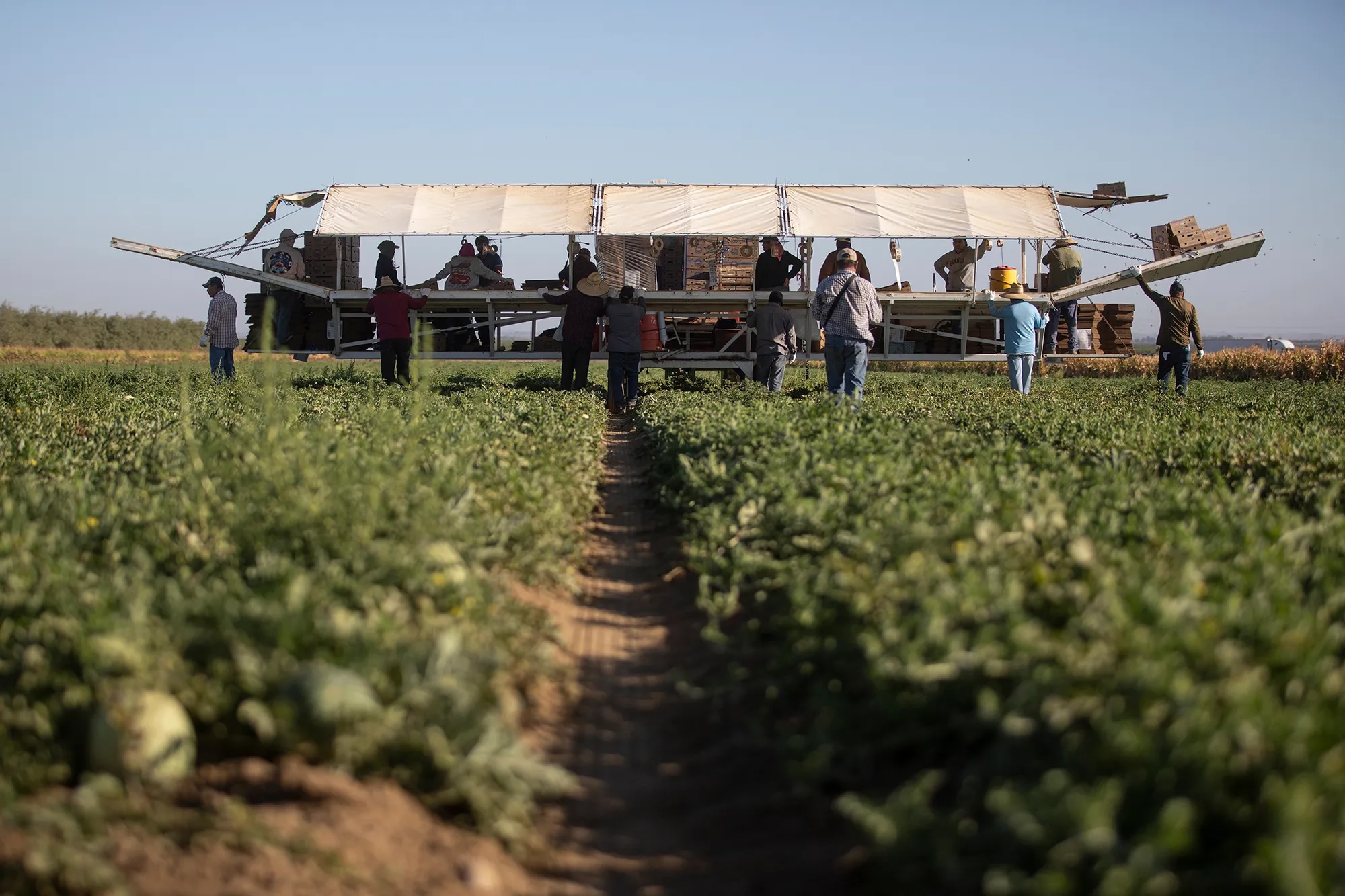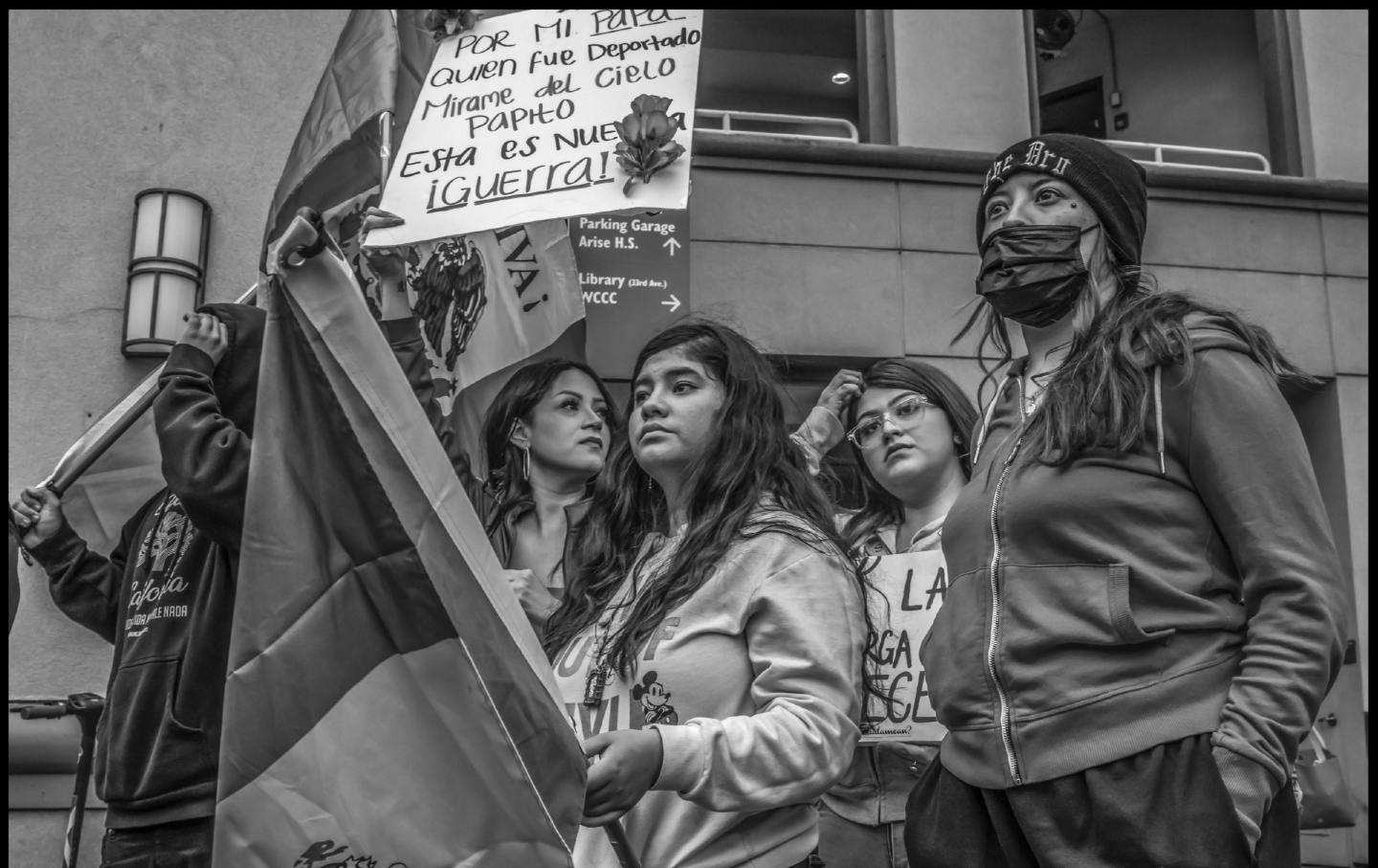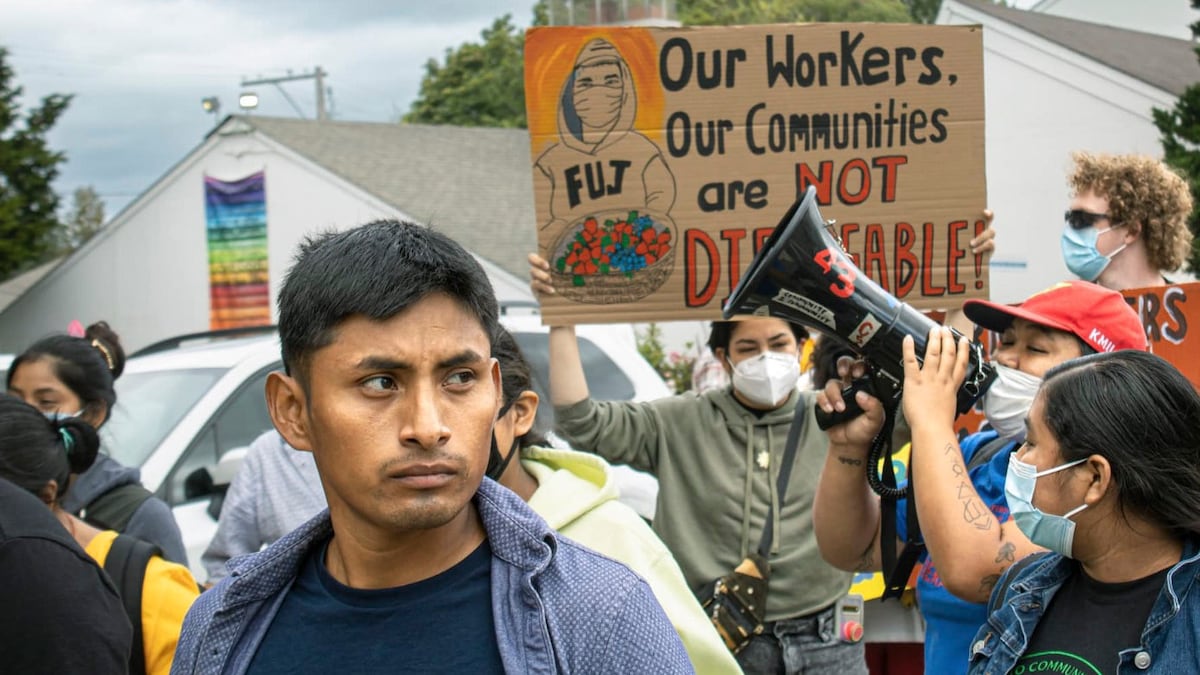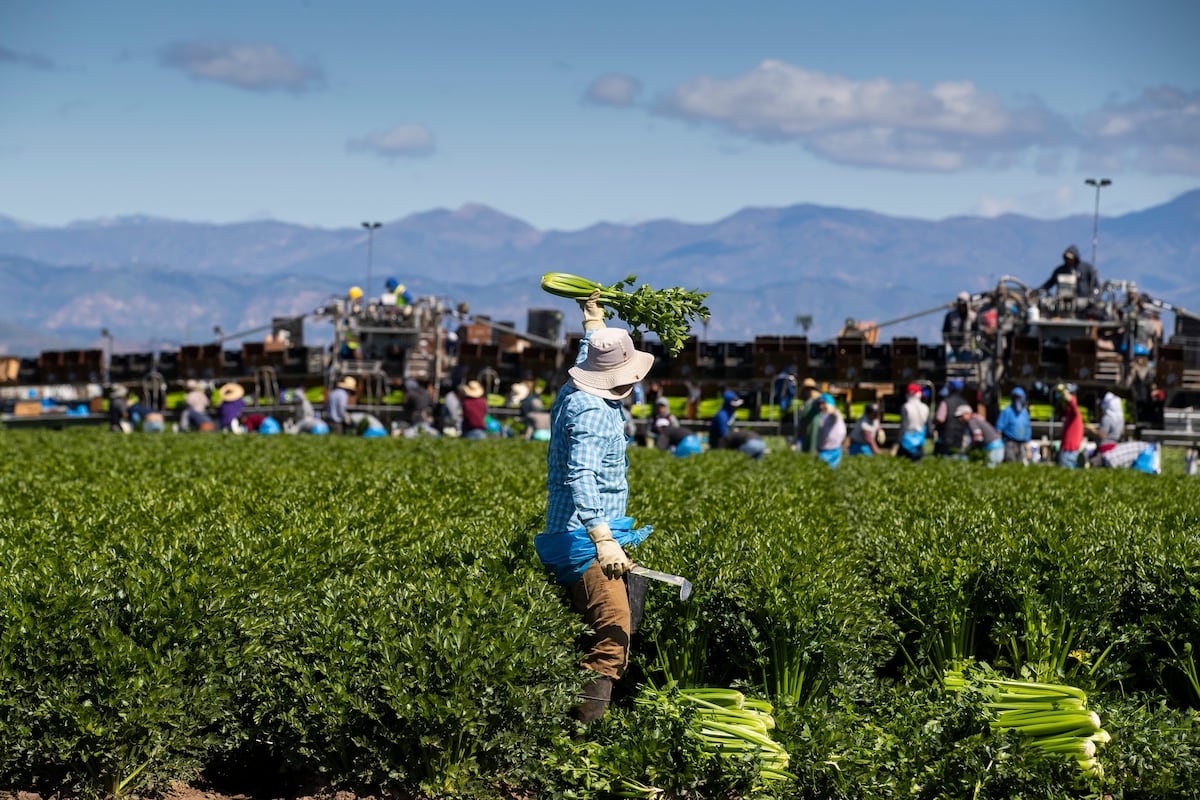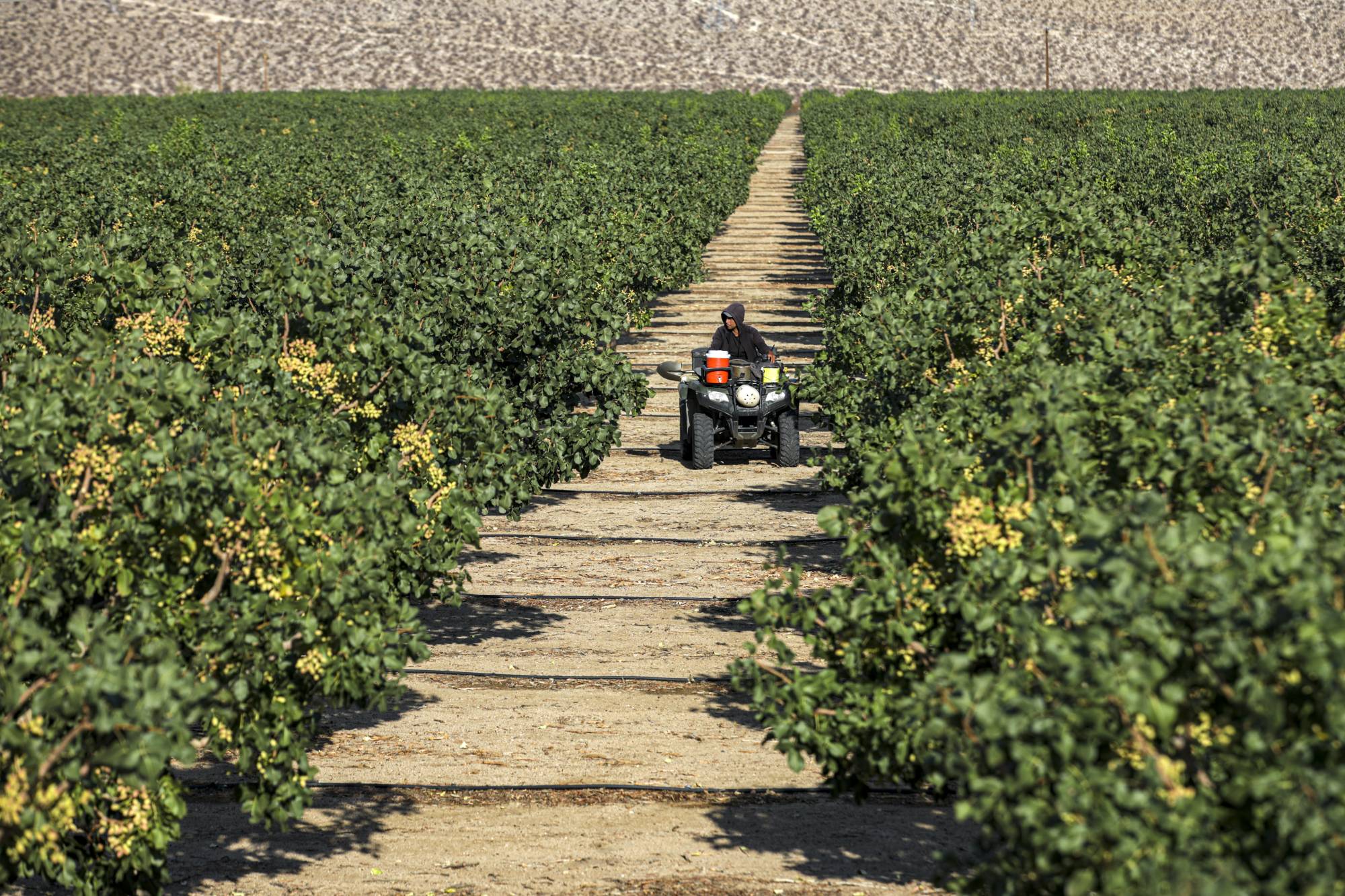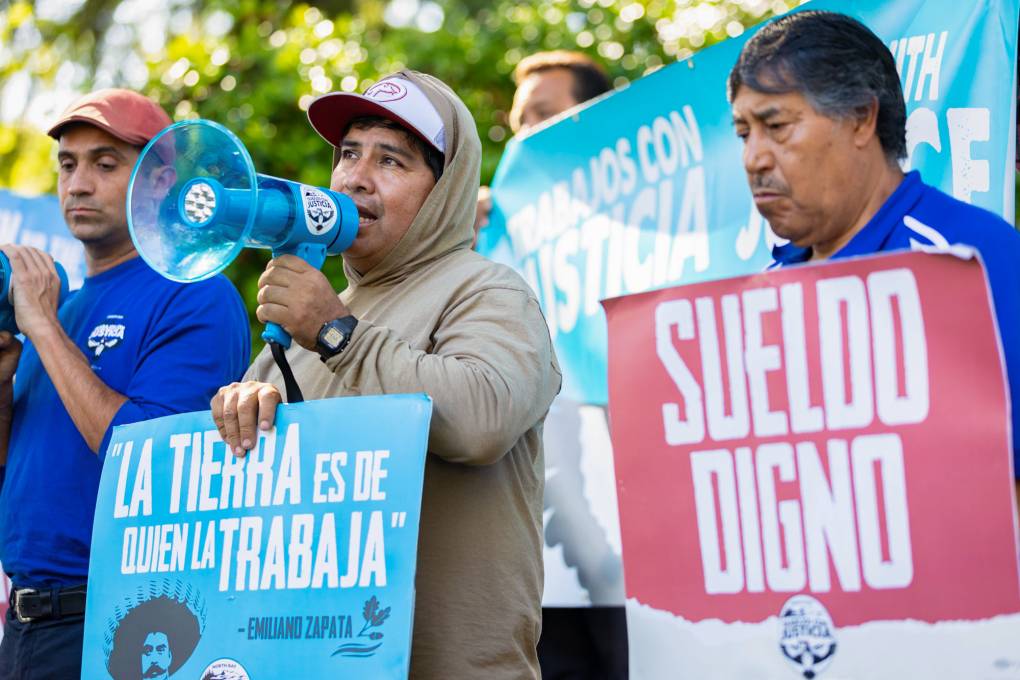#farmworkers
#farmworkers
[ follow ]
#immigration #labor-rights #ice #california-agriculture #agriculture #air-pollution #pm25 #deportation
fromThe Nation
3 months agoTrump the Drops Hammer on Farmworkers
H-2A workers are very vulnerable to pressure from their employers. They can only work for the growers who recruit them, who can legally impose production quotas and fire workers for not meeting them. Recruiters are legally allowed to refuse to hire women, and almost all H-2A workers are young men. They can be fired for protesting, organizing, or simply working too slowly. They then lose their visas and usually find themselves on a blacklist, unable to return to work in subsequent seasons.
US politics
US politics
fromwww.mercurynews.com
5 months agoOpinion: Trump's obsession with genes is a disturbing presidential tradition
President Trump claimed that undocumented Hispanic farmworkers are naturally suited by their genes for farm labor, echoing a long history of presidents disparaging immigrant groups.
fromABC7 San Francisco
9 months agoFirst homes for HMB farmworkers arrive 2 years after mass shootings exposed poor conditions
"It's been a very emotional day. It's been great, it was wonderful to see them come on site," said Matthew Estes, senior project manager for Capital Program Management.
Mission District
[ Load more ]


